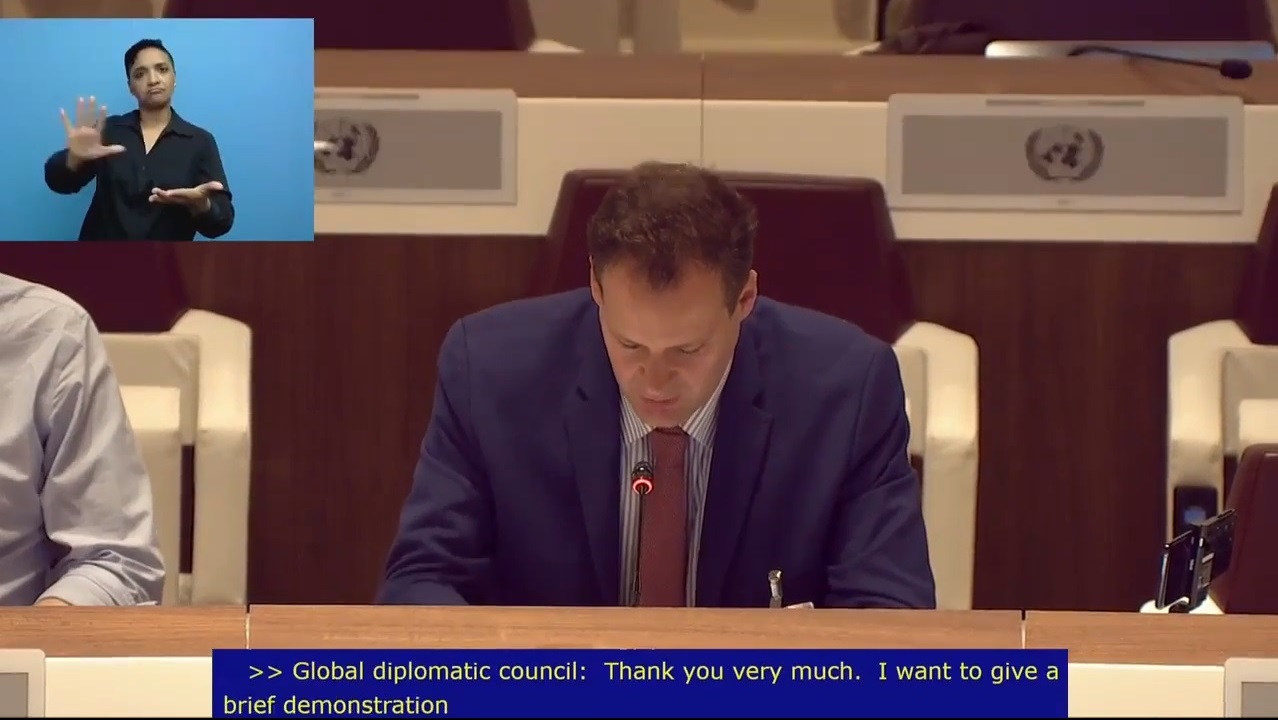Distinguished members,
I want to give a brief presentation on the situation of an indigenous language in northwestern Europe, namely Frisian.
Frisian used to be a language that was spoken in the coastal regions of Denmark, Germany and the Netherlands. Today, it is mostly confined to the Dutch province of Fryslan, where it has been one of the official languages since 1956.
The national and regional governments have implemented numerous programs to support and promote the Frisian language. They have implemented the Framework Convention for the Protection of Minorities and the European Charter for Regional or Minority Languages. Furthermore, numerous national programs, like the Visibility Accord of 2022 that promotes the visibility of frisian in streetsigns, provide for the protection and promotion of the Frisian language. Many good things to protect the Frisian language are happening. These accords and conventions provide many rights, but they also feel like false promises of a future that will never be.
The use of Frisian in public life is dwindling. It is increasingly becoming a language of communication for activists and academics instead of a language that defines an indigenous body of knowledge and is used for everyday communication.
What is needed now are not more rights but greater opportunities. The Frisian language will only have a chance to prosper if it can be on an equal footing with the other languages it competes with. In the case of Frisian, these languages are Dutch and English. In this constellation, Dutch is the central language supported by the national government, English the supercentral language connecting the world and Frisian the peripheral language.
This hegemonic view places power first and people second. Frisian is the indigenous language of the people and should therefore be the central, instead of the peripheral, language. People should always come before power.
Rights alone are not enough to achieve this situation. One reason is that social and cultural expressions in the Dutch language are heavily subsidized in order to compete with the global dominance of English. The Frisian language should be actively supported in such a way that it can locally be equal to its competitors. Opportunities instead of rights.
Finally, I wish to mention that the official support provided by the various governments to the Frisian language is often far from honest. Minor differences in the language are emphasized by the local government, and community programs to promote these differences are subsidized under the guise of promoting linguistic diversity. In reality, this is a way to decrease the viability of Frisian because it standardizes differences, which breaks the coherence of the language and diminishes the value of Frisian as a way of communicating with others, thereby increasing the dominance of the Dutch language.
In conclusion, I wish to repeat that without opportunities for the Frisian language to get on an equal footing with the Dutch language, the rights will remain false promises that undermine the spirit of the treaties and agreements promoting genuine linguistic diversity.
Thank you,
Jeroen Zandberg
EMRIP 15th session 4-8 July 2022, item 7 International decade of indigenous languages.

